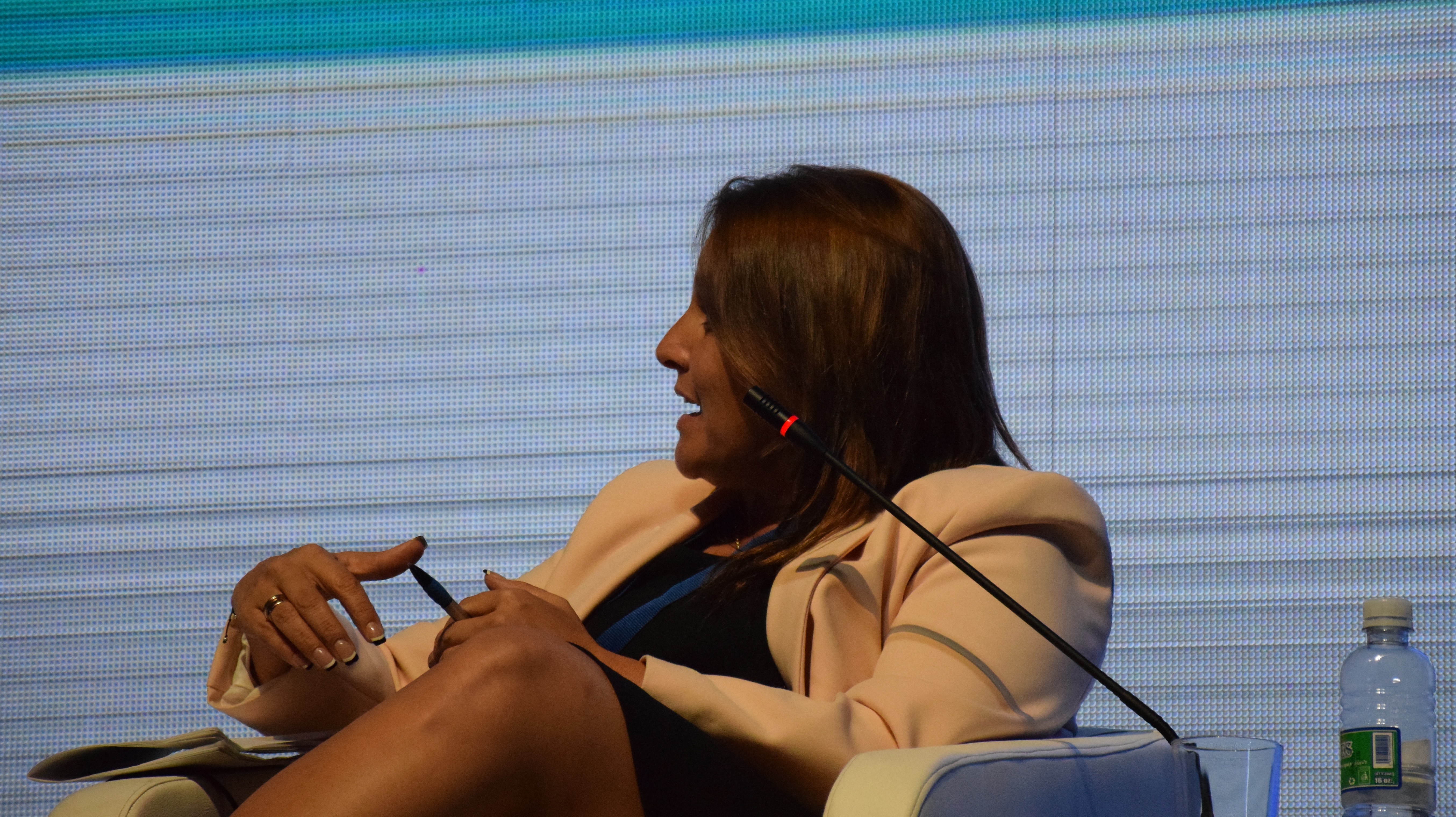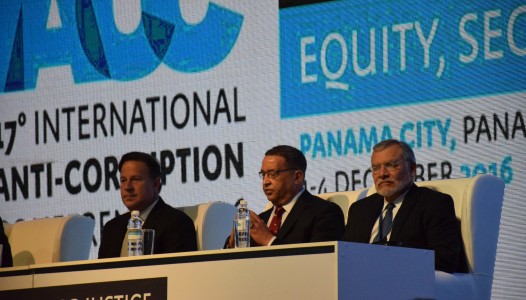by Brendan Sinnott and Evert-Jan Lammers
Among the interesting events was a discussion on Overcoming the Shadow Economy, mostly dealing with offshore tax havens. On the speakers, Nick Shaxson, is the author of a book on Tax Havens, called “Treasure Islands”, which quantifies the sums squirreled away in these islands, many of them in the Caribbean. Bodies, such as the OECD, have issued detailed reports on this topic and the Panama Papers news has added fuel to the fire of indignation over this practice. A recent resolution of the G20 called for a public register of Beneficial Owners in each of these havens. The sums are impressive – some $3 trillion according to some projections. A political solution would be the most efficient.
A session on Combatting Corruption in State-owned Enterprises (SOEs), demonstrated the efforts achieved by both TI-UK and the OECD in endeavouring to set guidelines for the operation of these entities: The OECD offered a framework for States to manage these SOEs, while TI-UK offered a template to them to manage their businesses. There was a lively debate on the work undertaken by USAID in helping reform the operation of Ukrainian SOEs in the energy sector, with a view to their privatization. Also, the Compliance Director of Petrobras outlined their work in streamlining Petrobras’s operations ahead of its partial privatization. Much of the debate centred on the difficulty of managing an SOE, given the tendency of Governments to interfere in their operations and appointing directors – based mostly on their political credentials and not their ability to manage a firm.
One of the plenary panels in the afternoon brought together leaders of Amnesty International, Transparency International, Harvard Law School and the Minister of Justice and Human Rights of Peru. They agreed that corruption is a common enemy to most governments, but each country alone is incapable of curbing the upward trend. They emphasized that the current international political structures are powerless. Thus, NGO’s like Amnesty and Transparency have stepped into the open space, reaching-out to the various actors, trying to keep them together in a collective effort: international cso’s, organizations such as OECD, UN and World Bank, sovereign states, the corporate world, and a wide variety of niche players such as investigative journalists, associations of anti-fraud experts, research institutes and academia. The aim is to overcome the fragmentation and to develop the power to curb corruption.
Maria Soledad Pérez Tello, (see photo) Minister of Justice and Human Rights of Peru, emphasized that impunity is the real problem, corruption is the symptom. If politicians do not end the impunity, the corruption will stay. Politicians must act responsibly.




